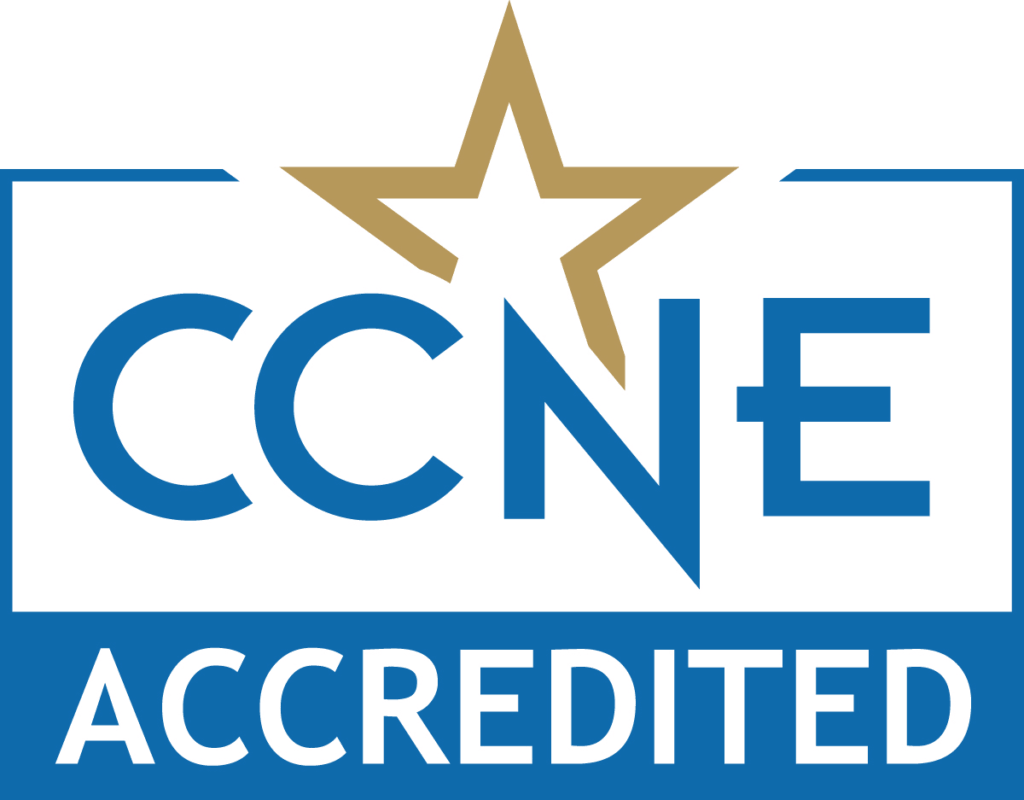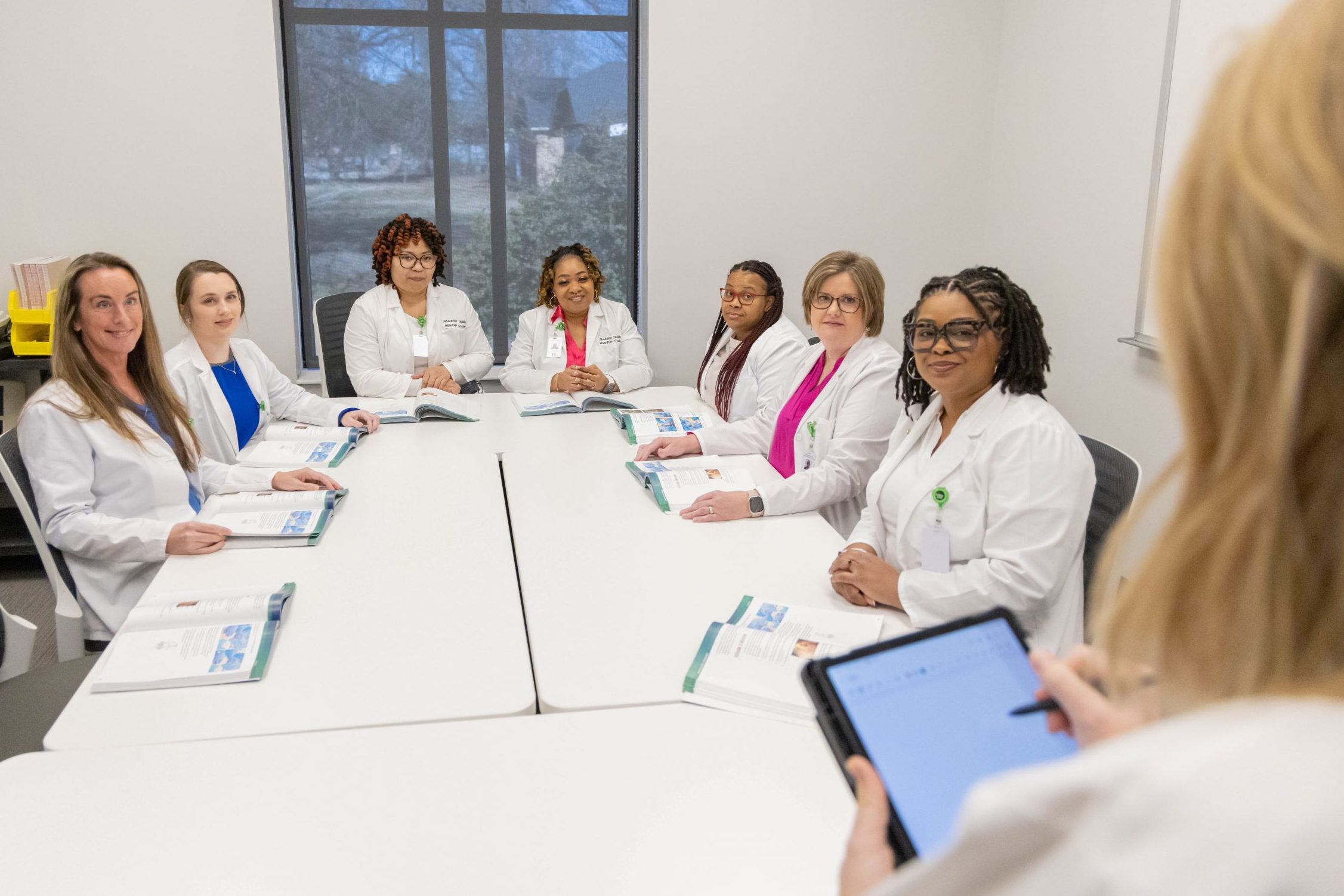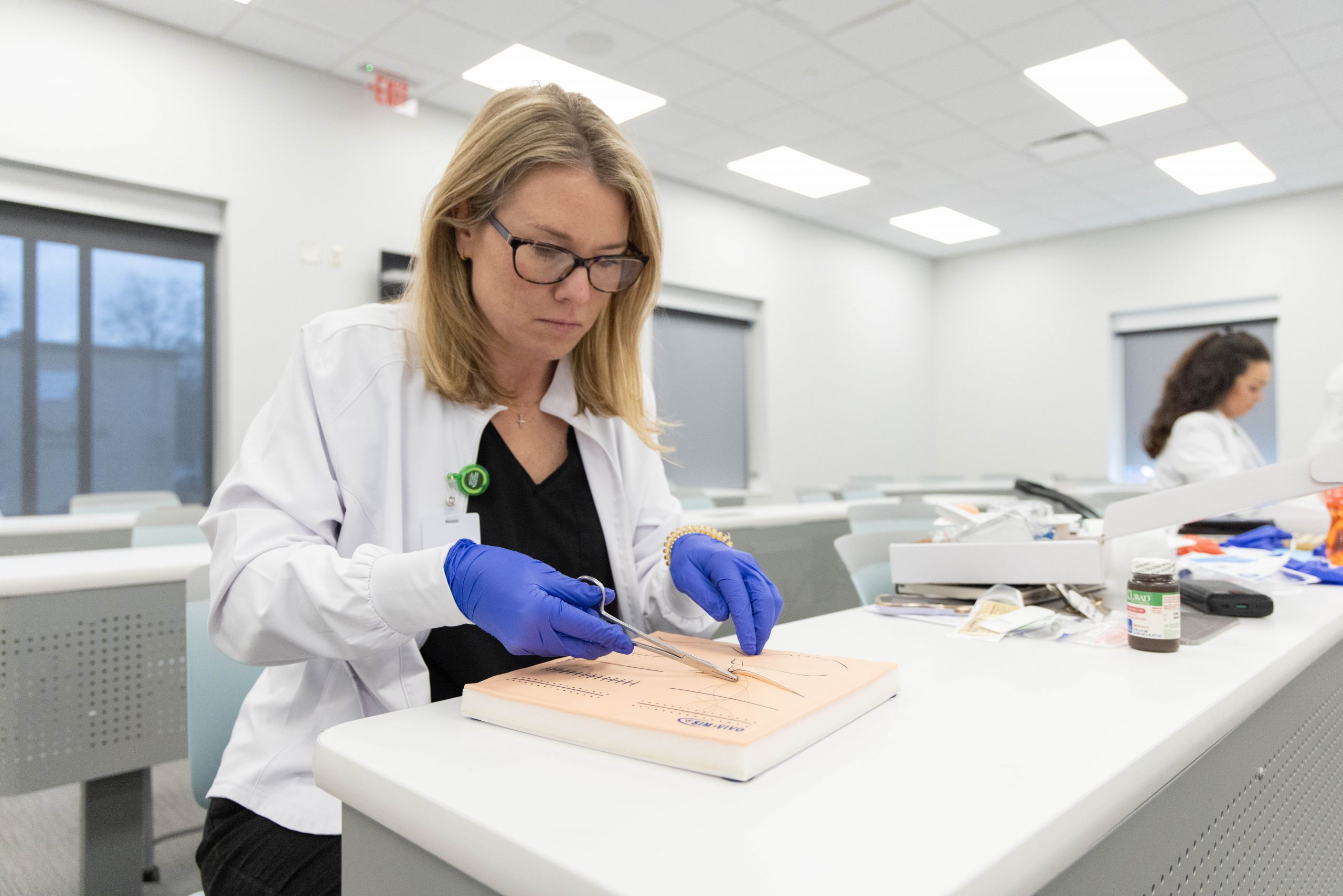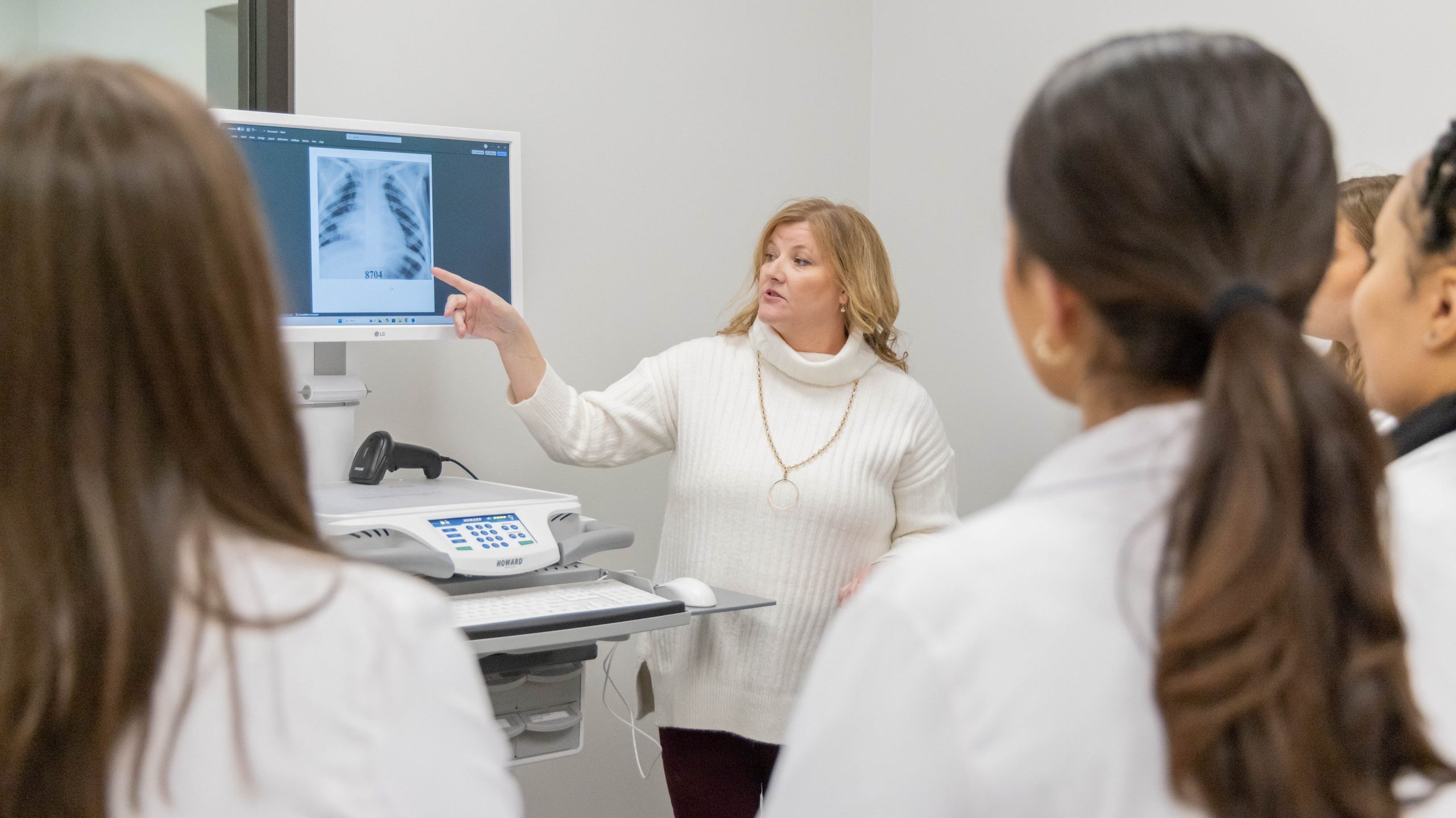The Robert E. Smith School of Nursing and Health Sciences at Delta State offers an online Post-Master’s Certificate in Nursing. This program is designed for registered nurses with a Master of Science in Nursing (MSN) and an active RN license who want to gain additional qualifications in a specific role or certificate. This flexible 2-year program, which requires 1-3 campus visits per semester, allows students to work while advancing their education.
Students choose between two concentrations: Family Nurse Practitioner or Nurse Educator. An MSN-educated Nurse Educator can pursue the Family Nurse Practitioner certificate, and vice versa, expanding their expertise and career options.
Online
Year Program
Campus Visit Per Semester
Why Get an Online Nursing
Post-Master’s Certificate at DSU?
The Nursing Post-Master’s Certificate online at Delta State is an excellent choice for nurses seeking to specialize further and expand their career opportunities. The curriculum is tailored to the specific role concentration a student is pursuing, such as Nurse Educator or Family Nurse Practitioner (FNP), ensuring that the content is highly relevant and practical. Students will take the same rigorous courses as those in the MSN program, covering topics such as curriculum development, pedagogies, and FNP patient exams. For the FNP track, clinicals must be completed in Mississippi or Arkansas, providing hands-on experience in real-world settings. Earning this certificate not only enhances your knowledge and skills for advanced roles but also broadens your job opportunities and prepares you to bring added value to your workplace.
- Applications accepted year round
- Fall enrollment only
- Full-time / Part-time options
- Nationally ranked program
- Student advisement available online
- Online program
- Flexible clinical schedule
- 1-3 campus visits per semester

The Post-Master’s Family Nurse Practitioner Certificate program at Delta State University is accredited by the Commission on Collegiate Nursing Education, 655 K Street NW, Suite 750, Washington, DC 20001, 202-887-6791.
Nursing Roles in the Certificate

Nurse Educator
The Nurse Educator role is tailored for nurses who already hold a MSN degree and wish to expand their expertise into teaching. This certificate prepares graduates to educate both nursing students and healthcare professionals through a focus on instructional leadership, curriculum planning, clinical teaching, research, and mentorship. Ideal for those seeking academic teaching positions—such as in community colleges—or educational roles within healthcare organizations, this pathway helps experienced nurses transition into educator roles. Coursework includes topics such as Advanced Nursing Research, Healthcare Policy, Instructional Strategies, Clinical Informatics, and Curriculum Design, providing the tools needed to thrive in a range of educational environments.

Family Nurse Practitioner
The Family Nurse Practitioner (FNP) role is designed for nurses who already hold an MSN degree and want to expand their practice into primary care. This program offers the academic preparation needed to seek national certification through AANP or ANCC and obtain state licensure as an Advanced Practice Registered Nurse (APRN). FNPs are trained to deliver care across the lifespan, with a focus on clinical services such as patient assessment, diagnosis, treatment, disease prevention, and health education. Graduates are equipped to serve individuals and families in diverse settings—particularly in underserved communities—by providing high-quality, continuous, and holistic care as primary care providers.
What Can I Do with a Post-Master’s Certificate in Nursing?
The nursing post-master’s certificate program makes possible a diverse array of career opportunities across various work environments, reflecting the profession’s growing versatility. With this advanced credential, you can explore roles in settings such as hospitals, clinics, community health centers, private practices, and schools. For Family Nurse Practitioners (FNPs), the certificate enables you to work in a range of healthcare environments, including private practice and hospitals, enhancing your ability to provide comprehensive care. Meanwhile, a Nurse Educator certificate prepares you to teach at the academic level, whether in community colleges or universities, where advanced degrees are often required. This credential not only broadens your career prospects but also allows you to specialize in areas such as clinical practice, academia, and healthcare administration, maximizing your impact in the field of nursing.
- Chief Nurse Officer
- Nurse Informatics
- Nursing Researcher
- Patient Educator
- Primary Care Provider
- Urgent Care/Walk-in Clinic Practitioner
- School-Based Health Provider
- Public Health Practitioner
Graduate Funding Opportunities
Graduate students at Delta State University have a number of funding opportunities available to them, including Graduate Assistantships, fellowships, scholarships, and loans. In addition, we also offer an affordable tuition rate with no additional fees for out-of-state students. We work closely with students to identify and apply for federal and state financial aid programs, as well as student loans and state scholarships. We are committed to providing our students with all of the tools necessary to succeed in the education field, including access to affordable education and financial support.
Program Goals
Our team of faculty and staff members work to ensure that our students are prepared to meet employment needs of academic settings and/or healthcare agencies.
- Provide master-prepared nurses with the knowledge and skills to assume the advanced role as a nurse educator or family nurse practitioner.
- Prepare master-prepared nurses to improve health outcomes at the system, population, or individual patient levels.
- Prepare master-prepared nurses academically to pursue education beyond the master’s level.

Student Learning Outcomes
Students can expect to achieve specific outcomes from the program. These outcomes combine to ensure that the student is qualified to meet professional standards of nursing care.
- Integrate nursing, related sciences, and emerging evidence to influence healthcare practice.
- Apply advanced knowledge, skills, and competencies to design, implement, and evaluate person-centered care.
- Integrate individual and population-based health strategies to address global healthcare needs.
- Translate theory and research to provide evidence-based nursing practice.
- Integrate quality and safety principles throughout care delivery.
- Foster professional partnership to strengthen the delivery of care and work environment.
- Coordinate resources to provide safe, quality, and equitable care to diverse populations within complex health systems.
- Promote the use of information and communication technologies to provide safe, quality, and cost-effective healthcare.
- Model professional expectations and ethical behaviors in practice and leadership roles.
- Employ leadership skills and strategies to advocate, mentor, and function within professional teams.
Admission Requirements
While the application deadline is February 1, you may apply to the graduate nursing program anytime throughout the year. Once your file folder is complete, you will be notified and an interview scheduled. Students considered for full admission to the graduate program in the Robert E. Smith School of Nursing and Health Sciences must meet the following requirements by February 1:
- Apply to Delta State University Graduate School and meet admission requirements as outlined in the Delta State University Graduate Bulletin.
- Meet admission requirements to the Robert E. Smith School of Nursing and Health Sciences Graduate Program as follows:
- Master of Science degree in Nursing with a minimum GPA of 3.00 overall.
- Completion of Robert E. Smith School of Nursing and Health Sciences Graduate Program Application.
- At least one year of continuous clinical nursing experience as a Registered Nurse for Nurse Educator.
- At least one year of continuous clinical nursing experience with patient contact as a RN within the past three years for Nurse Practitioner.
- Submission of a resume’ (further information included in the application packet).
- A copy of a current unencumbered registered nurse license to practice in the state in which the student will perform clinical.
- Completion of an interview with Robert E. Smith School of Nursing and Health Sciences faculty.
- A grade of “B” or better on a graduate level pathophysiology course.
- A grade of “C” or better on an introductory course in statistics.
Each student will be required to submit a completed health and immunization form provided by the Robert E. Smith School of Nursing and Health Sciences, evidence of personal health insurance and current BLS certification (infant, child, adult) after being accepted for admission.
Applicants must comply with Mississippi legislative statutes and regulations regarding criminal background checks by having fingerprints taken at an approved health care agency (not a police or sheriff’s department) and a criminal background check completed. Any cost of this requirement will be the student’s responsibility.
Applicants who want to receive credit for prior nursing course(s) taken at another institution must submit a written request with supporting documentation and credit be negotiated before admission to the Robert E. Smith School of Nursing and Health Sciences and not after the student is enrolled.
Curriculum
Students who already have a Master’s degree in Nursing may be admitted to selected courses necessary for preparation as a Nurse Educator or to meet educational eligibility to take the Family Nurse Practitioner national certification exam.
A certificate is awarded for satisfactory completion of the following courses:
Post-Master’s Nurse Educator Certificate, Plan of Study
30.5 credit hours (clinical hours 390)
Prerequisite: *NUR 603 Advanced Pathophysiology (3 credit hours)
1st Semester (Fall)
| Course Number | Course Title | Credits |
| NUR 602 | Advanced Health Assessment | 3 |
| NUR 605 | Advanced Pharmacology | 3 |
| NUR 621 | Role Synthesis (Nurse Educator) | 2 |
| TOTAL | 8 | |
2nd Semester (Spring)
| Course Number | Course Title | Credits |
| NUR 626 | Instructional Methodologies | 3 |
| NUR 627 | Instructional Methodologies Practicum | 1.5 |
| NUR 640 | Informatics in Clinical Practice | 2 |
| TOTAL | 6.5 | |
3rd Semester (Fall)
| Course Number | Course Title | Credits |
| NUR 604 | Advanced Healthcare Policy and Politics | 2 |
| NUR 628 | Assessment & Evaluation | 3 |
| NUR 629 | Assessment & Evaluation Practicum | 2 |
| TOTAL | 7 | |
4th Semester (Spring)
| Course Number | Course Title | Credits |
| NUR 632 | Curriculum Development & Evaluation | 3 |
| NUR 633 | Simulation in Nursing Education | 2 |
| NUR 636 | Nurse Educator Practicum | 3 |
| TOTAL | 8 | |
Post-Master’s Family Nurse Practitioner Certificate, Plan of Study: Full-time
40 credit hours (clinical hours 780)
Prerequisite: *NUR 603 Advanced Pathophysiology
1st Semester (Fall)
| Course Number | Course Title | Credits |
| NUR 602 | Advanced Health Assessment | 3 |
| NUR 605 | Advanced Pharmacology | 3 |
| NUR 620 | Role Synthesis (Nurse Practitioners) | 2 |
| NUR 624 | Differential Diagnosis | 2 |
| TOTAL | 10 | |
2nd Semester (Spring)
| Course Number | Course Title | Credits |
| NUR 604 | Advanced Healthcare Policy and Politics | 2 |
| NUR 630 | Family Nurse Practice I | 3 |
| NUR 631 | Family Nurse Practice I Practicum (240 clinical hours) | 4 |
| TOTAL | 9 | |
3rd Semester (Fall)
| Course Number | Course Title | Credits |
| NUR 634 | Family Nurse Practice II | 3 |
| NUR 635 | Family Nurse Practice II Practicum (240 clinical hours) | 4 |
| NUR 640 | Informatics in Clinical Practice | 2 |
| TOTAL | 9 | |
4th Semester (Spring)
| Course Number | Course Title | Credits |
| NUR 638 | Family Nurse Practice III | 2 |
| NUR 639 | Family Nurse Practice III Practicum (300 clinical hours) | 5 |
| NUR 680 | Family Nurse Practitioner Review Course | 2 |
| TOTAL | 9 | |
Post-Master’s Family Nurse Practitioner Certificate, Plan of Study: Part-time
40 credit hours (clinical hours 780)
Prerequisite: NUR 603 Advanced Pathophysiology (3 credit hours)
1st Semester
| Course Number | Course Title | Credits |
| NUR 602 | Advanced Health Assessment | 3 |
| NUR 605 | Advanced Pharmacology | 3 |
| NUR 624 | Differential Diagnosis | 2 |
| TOTAL | 8 | |
2nd Semester
| Course Number | Course Title | Credits |
| NUR 604 | Informatics in Clinical Practice | 2 |
| TOTAL | 2 | |
3rd Semester
| Course Number | Course Title | Credits |
| NUR 620 | Role Synthesis (NP & NE) | 2 |
| NUR 640 | Informatics in Clinical Practice | 2 |
| TOTAL | 4 | |
4th Semester
| Course Number | Course Title | Credits |
| NUR 630 | Family Nurse Practice I | 3 |
| NUR 631 | Family Nurse Practice I Practicum (240 clinical hours) | 4 |
| TOTAL | 7 | |
5th Semester
| Course Number | Course Title | Credits |
| NUR 634 | Family Nurse Practice II | 3 |
| NUR 635 | Family Nurse Practice II Practicum (240 clinical hours) | 4 |
| TOTAL | 7 | |
6th Semester
| Course Number | Course Title | Credits |
| NUR 638 | Family Nurse Practice III | 2 |
| NUR 639 | Family Nurse Practice III Practicum (300 clinical hours) | 5 |
| NUR 680 | Family Nurse Practitioner Review Course | 2 |
| TOTAL | 9 | |
Licensure Requirements
The Post-Master’s Family Nurse Practitioner (FNP) curriculum meets state educational requirements for professional certification and licensure as an Advanced Practice Registered Nurse (APRN). To determine the state requirements for professional nursing licensure as an APRN, please visit the National Council of State Boards of Nursing’s (NCSBN) Nurse Licensure Guidance webpage, then select the state where you want to know the professional licensure requirements.
Fees
Tuition at DSU covers the cost of classes.
Post-Master’s Nursing Certificate – Nurse Educator Course/Lab Fees (2025-2026)
Course/Lab fees for the BSN program are $888.00. See below the specific courses/lab fee breakdown by semester.
Spring or Summer Pre-requisite course
| Courses | Cost |
| NUR 603* | $110 |
| TOTAL | $110 |
First Semester
| Courses | Cost |
| NUR 602 | $399 |
| NUR 605 | $259 |
| NUR 621 | $100 |
| TOTAL | $758 |
Second Semester
| Courses | Cost |
| NUR 626 | $0 |
| NUR 627 | $0 |
| NUR 640 | $0 |
| TOTAL | $0 |
Third Semester
| Courses | Cost |
| NUR 604 | $0 |
| NUR 628 | $20 |
| NUR 629 | $0 |
| TOTAL | $20 |
Fourth Semester
| Courses | Cost |
| NUR 632 | $0 |
| NUR 633 | $0 |
| NUR 636 | $0 |
| TOTAL | $0 |
*Instructors may require exam proctoring services to verify student identity to minimize the risk of academic dishonesty. When required, these services may include an additional cost to the student.
Post-Master’s Nursing Certificate – Family Nurse Practitioner Course/Lab Fees (2025-2026)
Course/Lab fees for the BSN program are $2725.00. See below the specific courses/lab fee breakdown by semester.
Spring or Summer Pre-requisite course
| Courses | Cost |
| NUR 603* | $110 |
| TOTAL | $110 |
First Semester
| Courses | Cost |
| NUR 602* | $250 |
| NUR 605* | $110 |
| NUR 620 | $115 |
| NUR 624 | $0 |
| TOTAL | $475 |
Second Semester
| Courses | Cost |
| NUR 604 | $0 |
| NUR 630 | $375 |
| NUR 631 | $415 |
| TOTAL | $790 |
Third Semester
| Courses | Cost |
| NUR 634 | $305 |
| NUR 635 | $195 |
| NUR 640 | $0 |
| TOTAL | $500 |
Fourth Semester
| Courses | Cost |
| NUR 638 | $0 |
| NUR 639 | $75 |
| NUR 680* | $775 |
| TOTAL | $850 |
*Instructors may require exam proctoring services to verify student identity to minimize the risk of academic dishonesty. When required, these services may include an additional cost to the student.
Program Contact
Dr. Addie Herrod
Chair of the Robert E. Smith School of Nursing and Health Sciences
P: 662-846-4255
F: 662-846-4271
nursing@deltastate.edu

